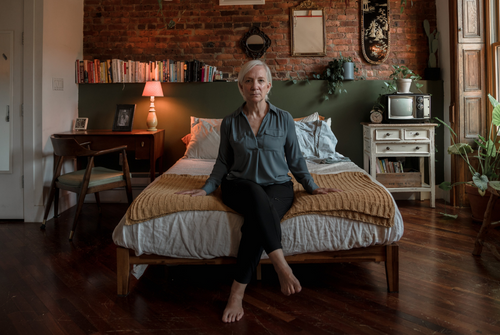
My Husband Destroyed Me Emotionally
Recently, two people wrote me. One was a woman who shared, “My husband destroyed me emotionally. How do I ever move on?” And ironically the other was a man, who said, “Women don’t have a monopoly on being abused.” My heart goes out to both of these brave people who are suffering, and to others who identify with their situations. In this piece, I share not what I wrote to them privately in response to their emails, but rather, my thoughts on emotional damage, relationships, and our American culture.
Who identifies with “My husband destroyed me emotionally”?
I am guessing many of you who are reading this.
Emotional destruction by a spouse: there are few things more difficult to heal from. The word “destroyed” is one of those words in the English lexicon that – in this case – I hesitate to use. It’s a word we hear in conjunction with nuclear explosions, California wildfires, tsunamis, and corporate oil spills. It suggests something that’s impossible to come back from. In the case of divorce or the severing of a long-term, intimate partnership, it can feel this way for a few years afterward — especially in the case of physical or emotional abuse.
Instead of “destroy,” I prefer the word “damage,” which suggests something that can truly be healed, something that can be made stronger, more graceful, and more functional by healing.
Husbands and wives are extensions of cultural value systems; we are all products of one culture or another. Husbands in patriarchal systems often have more leverage for exerting a destructive force in the lives of a wife they want to control.
Aside from their physical strength and the aggressive influence of testosterone, they also often are the ones in a marriage with more financial clout, status, and authority. If a husband from such a culture wants to wreak destruction, havoc and abuse, they are more in a position to do so than wives who may still be limited to hearth, home, and child-rearing rather than out in the world earning money.
Damage and destruction take many forms within a marriage. Toxicity comes in the guise of cheating, constant criticism or defensiveness – a refusal to take responsibility for one’s actions. There is yelling and verbal abuse, physical abuse, or threatening the family pet. Gaslighting, or a constant need to be right, addiction, financial recklessness, lying, manipulation, and chronic anger are also destructive.
Do you question if your marriage is unhealthy? Check out “27 Signs You are in a Toxic Marriage.”
But using the word “husband” exclusively here suggests that men are the only ones who wreak destructive emotional havoc that is toxic and difficult to heal. This is not the case. Men are not the only gender who can destroy emotional well-being, just as women are not the only victims of emotional toxicity, the only single parents, or the only gender to survive abuse.
Women are survivors of this kind of damage, and yes, emotional abuse and destruction. There is no doubt about that. But so are men, and as a culture, Americans have not successfully socialized men to understand or even talk about their feelings. Though our stories of what it is to be male or female are changing, thankfully, we still objectify men as the bread-winning “strong and silents.”
This website is for women, but if we women are to welcome the wholeness and healing that we say we seek, then we must recognize that we also damage emotional well-being to the point of destruction. And we need to improve how well we listen and take responsibility for our own hurtful behaviors. Women need to do a better job of encouraging men to value and discuss their own emotional processes, not just ours.
Being emotionally destroyed by your husband is not a pretty or comfortable truth, but it is a truth, nonetheless.
I have two male friends who had both been emotionally damaged by the women in their lives. For a period of time, they felt that their self-esteem had been destroyed. One had a wife of many years who cheated on him; he turned to alcohol, and it took his son telling him he was afraid for him to snap him out of the grief he was trying to numb.
The other had a long-term life partner who continually gaslighted him, refusing to take responsibility for how her cutting remarks affected him and redirecting the blame by making him out to be the cause of her continual caustic remarks.
He began his own self-rescue by pulling step by step out of the relationship, resisting the temptation to turn back to the familiar and call her. He went for long bike rides. He went to lunch with friends, played with his dog, bought a house in a neighboring town, and slowly, pulled his sense of himself out from under her.
And so, they healed themselves.
To the woman who said, “My husband destroyed me emotionally”, I want her and others like her to know that women go through a similar healing process, destroyed or not. Sometimes a husband’s damage is simply draining a wife’s vital spark by making her the only adult in the marriage.
I have another friend who married at 21 and divorced at 23. Her husband didn’t abuse her; in fact, he was a very caring man. But he had no sense of responsibility or recognition of his role as an adult in the marriage. He quit his job when she went on maternity leave because he wanted to be with her, overlooking the fact that she was still bringing in money from her job and now he was not. When she went into labor, he couldn’t be reached on the phone.
Finally, the woman asked her mother-in-law to go by the house. He had been playing a video game with headphones on for hours and hadn’t heard the ringtone. He was angry when she left him, as a child is when they are grounded for not doing their chores.
This woman healed herself by leaving, by refusing to take an ironic back seat to “Call of Duty.” For years, she healed herself by refusing to date or even consider another relationship. She focused on her personal growth, career, and children, as well as discovering not only her voice, but also what she truly desired. She started practicing yoga and later became a yoga instructor. She eventually remarried, but it took years for her new husband to persuade her that he was safe, worth the risk, and that he would join her in adulthood.
Women can heal themselves if they choose, if they choose to do the hard work in understanding their stories and taking action in support of themselves. Check out “46 Steps to Ensure Your Divorce Recovery: A Definition and a Guide.”
In terms of being emotionally destructive, I believe patriarchal institutions can be overlooked as secondary perpetrators. The question of destruction should be applied to the institution of marriage itself, and the culture that pushes it as a norm and a priority.
The institution of marriage and our culture can also make women feel like failures, with a continual emphasis on cleaving to one’s husband and motherhood being a woman’s top-tier priorities. Despite it being the year 2023, women are still shown by all the tools of cultural norming that if they are not making men, marriage, and childbirth their primary life goals, they are somehow missing the point of their existence.
Spoken or unspoken, there is a lingering message still felt by many: if you’re not a wife and a mother, you’re not a whole and complete woman. And getting ground down by that – especially for women who come from purity cultures with their steel cable ties to a religion where the whole emphasis is on being a wife and making your husband happy — can certainly be destroying.
When women are part of a system of thought that is not geared toward protecting them and their emotional needs but is instead geared toward leveraging them as a commodity for making other people comfortable, it leaves them with a drastically reduced sense of their own value as a human being and will undercut any sense of autonomy they might have had. This is especially true if the purity culture of their religion is tied to another rigid system, like a military or medical career, a police force, or even a hierarchical corporation.
If a woman has enough self-esteem to be upset about it, she will be able to get back up. But if she never knew she had a right to be mad in the first place, it’s a lot harder. It is often seeing their children begin to suffer abuse by the man of the house that snaps women out of the numbness that their own abuse has instilled.
It cuts through the haze of that life-or-death need to survive by sinking into denial or invisibility, and sends them on the road to healing. They realize that they have to get their children out. I know three women who literally packed their bags, got their children’s personal items together, and snuck out of the house in the middle of the night, or when their husbands were out of town.
If you are in an abusive relationship, please read this article, “Leaving an Abusive Marriage? There are Steps You Need to Take First.”
This kind of abuse so erodes a woman’s sense of self that it often takes a long time and something jarring for them to realize how unsafe their husbands are. But this doesn’t include all the little coping decisions made in less extreme situations – choices made to lessen presence, and become smaller:
What do I like to eat? How do I like the room when I sleep? What do I like to see in my space? All these small things make up the individual and a sense of autonomy. Gradually, women (and men) begin to trust their judgment again. Perhaps they talk to their friends and discover that many people get the emotional rug pulled out from under them and that this doesn’t mean their ability to make good choices or be discerning is fatally flawed.
Gradually, though, the small things grow into big things like: I’m going to enroll in a college course, or I’m going to work from home, or I think I’ll get a dog or my commercial driver’s license. Slowly we build ourselves back — sometimes from zero, sometimes not.
We become better at trusting ourselves and we rediscover what it feels like to know that being safe at home, whole and healed, mostly means just being ourselves. We get more committed to figuring out who that is and how to be just us. No matter how long this process takes, we’re all in there somewhere.
Schedule your free consultation with SAS for Women to discuss steps you can take to support your precious, emotional healing after a challenging divorce.
NOTES
Jennifer Bent is a freelance writer, print journalist and feature writer living in the South Carolina Lowcountry. Connect with Jennifer at verbosej@hotmail.com
Whether you are thinking about divorce, dealing with it, or recreating the life you deserve, one thing we see making a significant difference for women is the conscious choice to not do it alone. Since 2012, smart women around the world have chosen SAS for Women to partner them through the emotional, financial, and oftentimes complicated experience of breaking up and reinventing.
SAS offers all women six free months of email coaching, action plans, checklists, and support strategies for you — and your precious future. Join our tribe and stay connected.
*We support same-sex marriages. For the sake of simplicity in this article, however, we refer to your spouse as your “husband” or a “he.”






